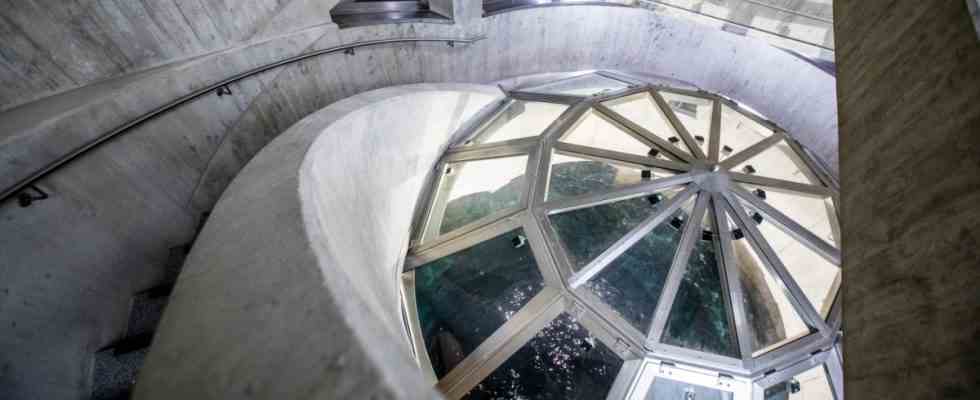His appearance was not announced at all, but shortly after noon Thorsten Faithr enters Munich’s Prinz-Carl-Palais, where the press conference after the cabinet meeting is taking place this Tuesday. The Minister of the Environment, summoned at short notice? “Bavaria is a land of water,” says Markus Söder (CSU), who is standing at the second lectern to the left of Glauber (Free Voters). At the latest, it becomes apparent what is going on here. “Water is not privatized in Bavaria,” Söder adds. “The three motions that could have irritated this protective nature are no longer relevant,” hectically cleared away by the prime minister himself.
The three applications that Söder is talking about had been submitted by his own parliamentary group together with the free voters in order to amend the state development program (LEP). The result was fierce criticism from environmental groups, local authorities and the opposition. “An unacceptable weakening of drinking water protection” stated the Association of Municipal Enterprises (VKU) in a fire letter.
In the past few days, public outrage has grown and drinking water is a sensitive issue. The extra-parliamentary ÖDP, initiator of the bee colony request, has already threatened a new request entitled: “Save our groundwater”. This mixture is said to have worried Söder, in six months there will be state elections. Now he whistles his people back.
“A good day for the most important food in Bavaria,” said Environment Minister Glauber. “It’s a good day that the three applications are withdrawn today.” Glauber initially stuck to the motions of the CSU and Free Voters, but he did not seem happy that the government factions wanted to write in the new LEP version that groundwater should no longer be “preferentially” used for drinking water supply, but only “particularly “. Just one word, but one that would have opened the door for food and beverage companies.
Have lobbyists written here?
How far the door would have opened is a matter of debate. FW parliamentary group leader Florian Streibl even asserts that “the applications would not have had any negative effects on the extraction of groundwater and deep water and in no way question the special protection of the water”. Which, however, raises the question of why the CSU parliamentary group and Streibl’s people then replaced the word “preferred” with “in particular”. And why are they reversing that now when this tiny correction supposedly doesn’t make that much of a difference. At least Streibl admits “that the heads of municipalities and districts would have expected a different signal from their state government in view of the increasing number of dry periods”.
Further criticism was sparked by the fact that the government factions had completely deleted the passage from their draft text, according to which deep groundwater “should only be used to the extent absolutely necessary”. And while it was initially said that “significant drinking water resources protected by water protection areas or priority or reservation areas should be permanently preserved for future use”, the terms “reservation areas” and “permanent” were suddenly missing in the final version. All of this fueled a suspicion that the opposition gleefully spread: did lobbyists write here?
The prime minister is keen on Tuesday to dispel this suspicion. The Water Resources Act, which the LEP cannot override, is decisive for drinking water protection, says Söder. Withdrawing the applications has to do with “political and communicative cleverness”. “The parliamentary group says: Before we produce misunderstandings, we will put that back.” However, it is doubtful that the CSU members of the state parliament withdrew the applications as voluntarily as Söder suggests. The interpretation of the Green faction leader Ludwig Hartmann is more plausible. The prime minister “collected” the applications because “the public pressure had become too great for him”.
SPD parliamentary group leader Florian von Brunn also says: “The CSU wanted to sell our water to investors. Then Söder suddenly realized that it was not well received by the people in Bavaria – and rowed back again.” Meanwhile, the Prime Minister announced that he would bring water suppliers, environmental organizations and consumers to a “round table” together with Environment Minister Faithr in order to “further develop the Bavarian water strategy” due to the increasing drought. Only on Monday did the Greens criticize that the state government was doing too little here.
The CSU and Free Voters also want to formally withdraw the three controversial applications this Wednesday in the state parliament’s legal committee.

